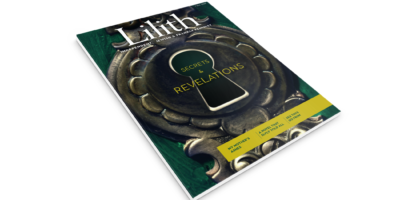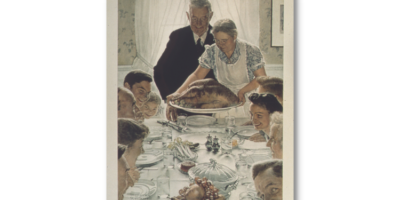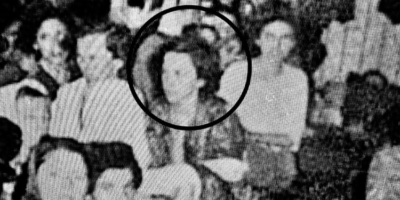
Democratizing Pleasure in the Frum Bedroom
IT’S SUPPOSED TO BE FUN, pleasurable for both partners, and interactive.” These affirmative words from Orthodox intimacy coach Bracha Bard-Wigdor may come as a surprise to those who assume observant Jews are uneasy or dismissive about sexual pleasure. But the reality is more complex. “God wants us to not just eat, but to enjoy foods, so He gave us taste buds. Sex without spirituality is just sex,” Bard-Wigdor elaborated to the Forward. Hers is one of several voices in the broader religiously observant community that are speaking out for female pleasure and self-actualization in the bedroom. It’s a small trend, but a notable one: Orthodox women are taking steps to democratize sexuality. And the steps they’re taking (small to some; huge to others) show that Jewish textual and spiritual values can make sex fairer—and more fun. And it also widens the secular feminist understanding of what sexual liberation might look like, and how important it is—even if it happens quietly, behind closed doors.
In a Midtown Manhattan office building, a discreet “pleasure boutique” carries a wide selection of products suitable for the more modest shopper. Massagers which, according to the shop owner, Kim Ibricevic, “could technically be used on any part of the body.” Massage candles and balms. Vibrators concealed as lipstick tubes, or in non-phallic shapes, like a rose. The shop draws people from all backgrounds, but customers from Orthodox Jewish and other religious communities are frequent customers thanks to the shop’s discreet location in an office building mostly housing dentists, accountants and other professionals.
The religious couples and single women who slip into the shop show an intentional pursuit of female pleasure within observant religious traditions, including Judaism. Following a secular sex toy explosion where every mainstream drugstore chain now seems to have a vibrator section masquerading as massage therapy, businesses and creators are building sex-toy enterprises on Jewish principles. In 2018, Chana Boteach— daughter of Shmuley Boteach author of the 1998 bestseller Kosher Sex—launched the sex toy company Kosher Sex. In 2013, artist Rebecca Sigala opened her “Boudoir Photography ‘’ business, with a mission to help Jewish women connect with their sensuality. And while pornography is forbidden by halakha (Jewish law), erotic writing is not—an anonymous writer under the pseudonym Shosha Pearl began publishing frum [strictly observant Jewish] erotic fiction for Orthodox Jews in 2012. Religious leaders typically regard these ventures as marital aids to be used exclusively by married heterosexual couples—but for many women who seek them out, they can be tools of self-exploration and empowerment.
Those helping religious women on their sexual journeys say this is a welcome change. For decades, depending on her background, a frum woman might first learn about sex in the mandatory “kallah” or bridal class taken before her wedding, and these brief sessions may be confusing, especially if euphemisms are used for body parts. With only this crash course in marital sex, a newlywed may not have the language to advocate for her pleasure. And women are aware of this deficit. A 2016 study by psychiatrist Dr. Michelle Friedman, director of pastoral counseling at Yeshivat Chovevei Torah reports that observant women wished their bridal instructor would have taught more about “the place of sex and pleasure in Torah life,” “sex and emotion”… and “shalom bayit (family harmony).”
Of course, non-observant women often face similar hurdles to sexual confidence and self-expression, given our culture of shame and misinformation surrounding female sexuality. The destigmatization of female pleasure is a ground shift for everyone, religious or not.
WHERE IDEOLOGY ALLOWS, ENTERPRISE FOLLOWS
Our growing understanding of female sexuality (thanks, in part, to pop culture’s response to three-plus waves of feminism) has opened opportunities for entrepreneurship. In recent decades, feminists and engineers (and feminist engineers) have been developing, merchandizing—and buying—sex toys and other products designed to promote sexual health and enjoyment. Globally, it’s a $30.48 billion industry.
Recently, Dame—a “women-powered” sex toy company based in New York City—settled its lawsuit against the Metropolitan Transit Authority, which had declined to advertise their products in subway cars. This despite the MTA’s acceptance of ads for erectile disfunction medications and other products focused on the sexual interests of men. Keep your eyes open the next time you ride the NYC subway—you’ll see them all.
But how is any or this kosher? Orthodox pleasure pioneers cite Exodus 21, which sets forth a husband’s marital obligations and the mitzvah, or ritual obligation, to pleasure his wife. In fact, according to chassidic and other sources, deprivation of pleasure in a marriage is valid grounds for divorce. The Torah and Talmud recognize that a satisfying sex life can help build and preserve family harmony, and the preservation of the Jewish people through procreation. But pleasure is also a “divine gift,” and most interpretations of Judaism recognize the value of it for its own sake. Rebecca Sigala told Lilith, “We’re on this Earth, and God gave it to us to enjoy, and we can make the physical things holy.”
And what about self-pleasure? The Torah’s proscription on masturbation is concerned primarily with the “spilling of seed.” For those with no seed to spill, there seems to be no guidance or proscription at all under Jewish law. Many sexual health professionals connected to the Modern Orthodox community encourage women to get to know their bodies. Sex therapist Max Grunberg writes in The Times of Israel that, “In Jewish tradition, female masturbation is allowed when it’s for exploring oneself and one’s sexual feelings.”
Jewish texts aside, there are plenty of Jewish feminist icons who are widely known for their encouragement of women’s sexual self-exploration and self-pleasure—Dr. Ruth Westheimer, Judy Blume and Joani Blank, among others. And despite a lack of conversation about female masturbation in Judaism (and really, in American culture in general), “almost two thirds of participants in [Dr. Michelle Friedman’s] study reported masturbating at frequencies ranging from several times per week to every few months.”
A SENSUAL REVOLUTION
So what’s available to an unmarried woman or teenage girl who finds herself struggling with a mobility limitation or vaginismus (a condition in which the vaginal muscles tighten involuntarily in response to penetration)? Or who simply wants a more expansive understanding of her own body? To keep things in line with halakha, there are kosher sex toys.
This doesn’t mean your Magic Wand was blessed by a rabbi. To be kosher, a toy must be packaged and sold modestly (no explicit imagery). Because of the Torah’s prohibition on male masturbation, most toys designed for folks with penises would not be considered kosher, though products designed to improve stamina during penetrative sex are allowed. (Note: electronic toys become treyf—forbidden—on Shabbat, but liquid lubricant and manual toys remain kosher.) It’s important to acknowledge that, according to a Psychology Today study, only about 25 percent of people with vulvas consistently reach orgasm through intercourse (though an orgasm is not the only indicator of pleasure—sometimes it’s about the journey, not the destination), and so the focus of most kosher sex toys is external stimulation, which, during (heterosexual) partnered sex, will enhance intercourse, rather than replace it. Halachically.
Inspired by her father’s work, Chana Boteach wanted to bring about a “sensual revolution.” She laments that “women have been taught to have sex more like men—with less emotion, less connection, less attachment.” According to her, toys are a means to greater connections. But unlike her father, author Shmuley, she argues that single women should not be left out, and frequently assists customers in search of toys for solo use. She notes, “I don’t know how healthy it is for you to suppress that part of yourself…I think the Torah is very understanding that we’re human.” But she says that the ultimate goal of self- exploration is better intimacy in a relationship.
And that includes same-sex relationships and those outside of the gender binary. The new openness towards female pleasure is happening as some religious Jewish leaders and organizations are supporting the queer community. Eshel, for example, is an organization featuring programming and resources to “create a future for Orthodox lesbian, gay, bisexual, and transgender individuals, and their families.” Boteach describes, “God is good and doesn’t want people to be alone. To me, anyone that wants to bring love into the world…I think God wants more of that and it’s not our place to judge.”
Ibricevic, proprietor of NYC office-building boutique Lady Konfidential says sex toys are intended not only for fun and intimacy, but also for maintaining health, as pleasure can help “raise seratonin levels and break away anxiety,” not to mention the power of orgasms to diminish pain from headaches and menstrual cramps. Plus, products such as dilators and dildos can prevent vaginal atrophy, which is common in women who haven’t been sexually active in a long time. And many toys could also be considered assistive technology for folks with dis- abilities, a population discussed in Loneliness and its Opposite, by Don Kulick and Jens Rydström. Some survivors of sexual trauma may even find the nonphallic shape, playful appearance, and control that toys give them to be healing.
In a similar vein, Sigala describes her Boudoir Photography business as an opportunity for women to achieve control, healing and self-expression. Many of Sigala’s clients are Orthodox women, and she says that her sessions provide a “revolutionary” experience for those who are not married, as “they don’t really have an outlet for their sexuality that they feel is appropriate.” And for those who are married, she shares, “originally, there was a focus on religious women doing this for their husbands… But almost every woman I see is doing it for herself.”
PUSHING BACK
Although secular Jews may be stereotyped as having a healthy attitude towards sex and more religious may be seen as prudish, the reality is far more complex. There is no singular Jewish Attitude Toward Sex. And beyond religious identity, sociocultural forces as small as one family and as large as The Patriarchy shape individual sexualities. As couples’ therapist and t.v. personality Dr. Orna Guralnik told Lilith, she frequently hears about “differences in sex education, what people saw in their childhood homes—how open were their parents? What was the nature of their parents’ relationship?”
But family norms and culture and religious interpretations (especially in Judaism) are ever-evolving.
Perhaps kallah classes for brides-to-be will be become more thorough, with more attention to sensuality and self pleasure (including sex toys). They could help teen girls connect with their bodies and unlearn the common fears that, Dr. Guralnik reported, can ultimately cause problems in the bedroom. More openness about discussing sexuality at home may also help, not only to relieve anxieties about intimacy in marriage, but also to help queer teens better understand themselves and feel sup- ported, rather than ashamed and disconnected from themselves.
When we think of sexual liberation, we may picture the Second Wavers of the 60s or Cardi B and Megan Thee Stallion. But the stories of Orthodox women are part of the ongoing story too.
Arielle Silver-Willner is Lilith’s Assistant Editor (and a former intern), currently working on a queer new adult novel.








